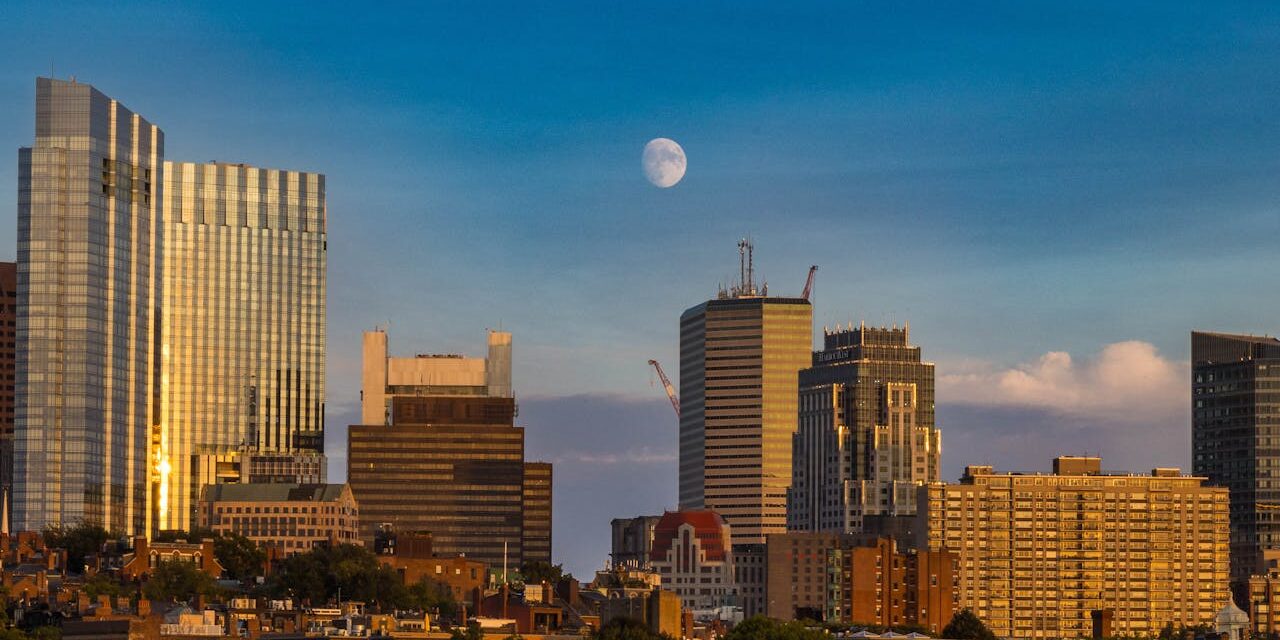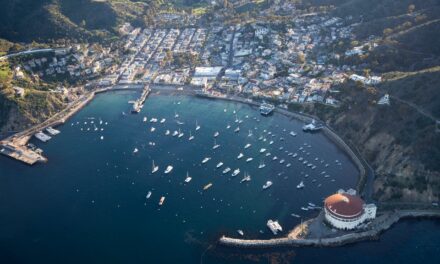Fort Worth is a lively and eclectic city located in North Central Texas.
I first visited Fort Worth on three separate occasions from 2018 to 2020. Each visit was full of delicious food, fun, nightlife, events, and good times with good people.
Fort Worth is known for its rich history, flourishing cultural scene, and many attractions, including the Stockyards National Historic District, the Fort Worth Zoo, and the unique Modern Art Museum of Fort Worth.
One of my most joyous memories of visiting Fort Worth was riding the trolley around the city’s central part and then walking for an entire afternoon. The architecture in Fort Worth is stunning, with many buildings to explore and admire.
Fort Worth is also home to many major industries, including aerospace, healthcare, and logistics. Overall, Fort Worth is an energetic and spirited city with many to offer residents and visitors.
Table of Contents
What are 20 things to do in and around Fort Worth?
There’s plenty to do in Fort Worth if you’ve never visited.
From art to food and wine to many museums and entertainment venues to visit, there’s something for everyone in this city.
- Visit the famed Fort Worth Stockyards National Historic District, a favored destination for rodeos, shops, and restaurants.
- Explore the Fort Worth Museum of Science and History, which offers interactive exhibits and educational programs.
- Go to the Kimbell Art Museum, home to a world-renowned art collection.
- Take a trip to the Fort Worth Zoo, home to over 7,000 animals.
- Visit the Modern Art Museum of Fort Worth, which features a modern and contemporary art collection.
- Go shopping in Sundance Square, a pedestrian-friendly area with many shops and restaurants.
- Attend a concert or event at the Will Rogers Memorial Center, a multi-purpose venue that hosts a variety of shows and exhibitions.
- Explore the beauty of the Texas Hill Country, known for its rolling hills, wildflowers, and wineries.
- Get tickets for Six Flags Over Texas, an amusement park in Arlington with thrill rides, shows, and other attractions.
- Hike the Trinity Trails, a network of over 40 miles of hiking and biking trails.
- Visit the famed National Cowgirl Museum and Hall of Fame, which celebrates the contributions of women to the American West.
- Go to a game or event at AT&T Stadium, which is home to the Dallas Cowboys football team.
- Visit the Fort Worth Water Gardens, a beautiful park with several unique water features.
- Spend an evening at the Near Southside, a historic neighborhood with a mix of hip bars and music venues.
- Make a stop at the West 7th Street corridor, known for its lively atmosphere and diverse selection of bars and restaurants.
- Try local cuisine at one of the many restaurants, breweries, and cafes in Fort Worth.
- Visit the National Multicultural Western Heritage Museum, which celebrates the contributions of diverse cultures to the American West.
- Stop by the Fort Worth Botanic Garden, home to over 2,500 species of plants.
- See the Fort Worth Herd; a twice-daily cattle drive through the Stockyards.
- Explore the Fort Worth Nature Center and Refuge, a 3,600-acre nature reserve with hiking trails, educational programs, and wildlife.
Are you still looking for more great things to do in Fort Worth? Ask a local! Remember, you’re in the south, and you’ll find the locals are friendly, welcoming, and willing to lend a recommendation for a favored activity or restaurant.
How do I spend one day in Fort Worth?

Although you won’t be able to see all Fort Worth has to offer in just one day, a suggested one-day itinerary might include the following:
- First, begin your day with breakfast at one of Fort Worth’s local cafes or restaurants, such as The Tin Cup Cafe or The Cattlemen’s Fort Worth.
- After breakfast, visit the Fort Worth Stockyards National Historic District to explore the area’s history and culture.
- In the afternoon, go to the storied Fort Worth Museum of Science and History to learn about science and technology or the Kimbell Art Museum to see a collection of art from around the world.
- After the museum, enjoy a cold drink and a snack at Fort Worth’s breweries or taprooms, such as the Wild Acre Brewing Company or the Martin House Brewing Company.
- Check out a live music or comedy show at Billy Bob’s Texas or the Bass Performance Hall in the evening.
- Finish your day with dinner at Fort Worth’s restaurants, such as the Lonesome Dove Western Bistro or the Reata Restaurant.
Remember, this is only one example of a one-day itinerary for a visit to Fort Worth. Depending on the time of year and your varied interests, there are bound to be plenty of other activities and attractions to enjoy in the area.
What else is there to do in Fort Worth?

There are lots of exciting and entertaining things to do in Fort Worth!
A famous attraction in Fort Worth is the Fort Worth Water Gardens, a beautiful park featuring several unique water features.
Other museums not to miss are the Fort Worth Museum of Science and History, which offers interactive exhibits and educational programs, and the National Cowgirl Museum and Hall of Fame, which celebrates the contributions of women to the American West.
Fort Worth is also home to several professional and successful sports teams, including the TCU Horned Frogs football team and the Texas Rangers baseball team, so there are plenty of opportunities to catch a game.
Additionally, Fort Worth has a thriving music and arts scene, with various live music venues, galleries, and theaters.
What is there to do near Fort Worth?
Fort Worth is in North Central Texas and part of the Dallas-Fort Worth metropolitan area, so there are likely many things to do and see in the surrounding area.
Some suggestions for things to do near Fort Worth might include:
- Visiting the Dallas Arts District, the biggest and best urban arts district in the United States, home to many museums, galleries, and performance spaces.
- Exploring the beauty of the Texas Hill Country, known for its rolling hills, wildflowers, and wineries.
- Taking a trip to Six Flags Over Texas, an amusement park in Arlington with thrill rides, shows, and other attractions.
If you’re looking for good food, you can’t miss a famous Fort Worth institution: Pappadeaux Seafood Kitchen. Visit the restaurant for Cajun comfort food and delicious drinks.
What do locals do in Fort Worth?

An appealing Fort Worth visit for locals could be visiting the Fort Worth Stockyards, a historic district featuring rodeos, shops, and restaurants.
Locals in Fort Worth also like to attend concerts and events at the Will Rogers Memorial Center, a multi-purpose venue that hosts a variety of shows and exhibitions. Exploring the many parks and outdoor spaces in Fort Worth, such as the Trinity Trails, a network of over 40 miles of hiking and biking trails, is another favorite activity of locals.
Additionally, Fort Worth has a vibrant food and drink scene, with many local restaurants, breweries, and cafes, so trying local cuisine could be a great way to experience and see the city like a local.
Does Fort Worth have a night life?
Yes, Fort Worth has a lively and vibrant nightlife scene. The city offers a variety of bars, clubs, and other entertainment options, so there is something for everyone.
Some popular nightlife destinations in Fort Worth are:
- Sundance Square is a pedestrian-friendly area with many bars, restaurants, and shops.
- The Near Southside is a historic neighborhood with a mix of hip bars and music venues.
- The West 7th Street corridor is known for its lively atmosphere and diverse selection of bars and restaurants.
Fort Worth has a thriving music scene, with many live music venues that host local and national acts. Overall, Fort Worth offers plenty of opportunities for nightlife and entertainment.
What is the history of Fort Worth?
Fort Worth is a North Central Texas city near the western edge of the Dallas-Fort Worth metropolitan area.
The city was founded in 1849 as an army post, and it was named after General William Jenkins Worth, who fought in the Mexican-American War. Fort Worth quickly grew into a prosperous cattle town, and it became a critical stop on the Chisholm Trail, which cowboys used to drive cattle from Texas to Kansas.
In the late 19th and early part of the 20th centuries, Fort Worth developed into a significant commercial and industrial center, and it remains an essential economic center today.





